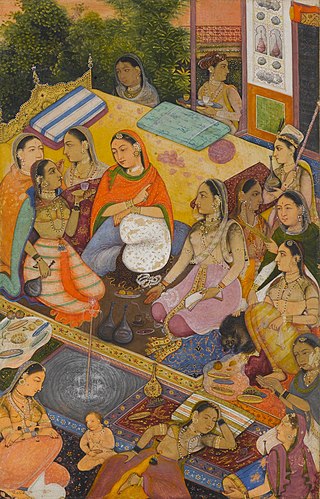
John J. Farmer Jr. is an American author, lawyer, politician, and jurist. He is the director of the Eagleton Institute of Politics, where he also leads the Miller Center for Community Protection and Resilience (CPR). He served as acting governor of New Jersey for 90 minutes on January 8, 2002, by virtue of his status as New Jersey Attorney General.

Signs: Journal of Women in Culture and Society is a peer-reviewed feminist academic journal. It was established in 1975 by Jean W. Sacks, Head of the Journals Division, with Catharine R. Stimpson as its first editor in Chief, and is published quarterly by the University of Chicago Press. Signs publishes essays examining the lives of women, men, and non-binary people around the globe from both historical and contemporary perspectives, as well as theoretical and critical articles addressing processes of gendering, sexualization, and racialization.
Carmen Twillie Ambar is an American attorney, academic, and the current president of Oberlin College in Ohio. She was appointed to the post in May 2017.

The Eagleton Institute of Politics at Rutgers University was established in 1956 with an endowment from Florence Peshine Eagleton (1870–1953), and it focuses on state and national politics through education and public service. Ruth Mandel served as director for over 20 years, before being succeeded in that role by John Farmer Jr. in September, 2019.

The Institute for Women's Leadership (IWL) at Rutgers University is a consortium of ten units based at the Rutgers-New Brunswick campus. It is dedicated to the study of women and gender advocacy on behalf of gender equity, and the promotion of women's leadership locally, nationally, and globally. Established in 1991 by former Dean of Douglass Residential College, Mary S. Hartman, the institute has been led by Rebecca Mark since January 2020.
A gender gap in voting typically refers to the difference in the percentage of men and women who vote for a particular candidate. It is calculated by subtracting the percentage of women supporting a candidate from the percentage of men supporting a candidate. Contrary to many popular media accounts, gender gaps are not within-the-gender differences in candidate support, nor are they the aggregate total of men's and women's within gender differences.
The Women & Politics Institute (WPI) is a research institute located in the School of Public Affairs at American University, in Washington, D.C. Their mission is to close the gender gap in political leadership. The institute provides young women with academic and practical training that encourages them to become involved in the political process. It facilitates research to enhance the understanding of the challenges women face in the political arena.

Women's history is the study of the role that women have played in history and the methods required to do so. It includes the study of the history of the growth of woman's rights throughout recorded history, personal achievements over a period of time, the examination of individual and groups of women of historical significance, and the effect that historical events have had on women. Inherent in the study of women's history is the belief that more traditional recordings of history have minimized or ignored the contributions of women to different fields and the effect that historical events had on women as a whole; in this respect, women's history is often a form of historical revisionism, seeking to challenge or expand the traditional historical consensus.

The 2012 Project is a nonpartisan national campaign of the Center for American Women and Politics (CAWP) at Rutgers University. The project’s goal is to identify and engage accomplished women to run for the United States Congress and state legislatures following reapportionment and redistricting within each state. U.S. Census data collected every 10 years include information on population shifts across the nation and are used to redraw congressional and state legislative districts resulting in new and open legislative seats. This work is done in order to comply with the 1965 Voting Rights Act and the "one person, one vote" principle. As of the 2010 Census, women made up 50.8% of the population. In terms of congressional and legislative seats, women currently make up 17% of the U.S. Senate and 16.8% of the U.S. House of Representatives. They make up a slightly larger percentage of the state legislatures at 23.6%. The aim of The 2012 Project is to increase the number of women running for state legislative and congressional office in 2012.
Voting behavior refers to how people decide how to vote. This decision is shaped by a complex interplay between an individual voter's attitudes as well as social factors. Voter attitudes include characteristics such as ideological predisposition, party identity, degree of satisfaction with the existing government, public policy leanings, and feelings about a candidate's personality traits. Social factors include race, religion and degree of religiosity, social and economic class, educational level, regional characteristics, and gender. The degree to which a person identifies with a political party influences voting behavior, as does social identity. Voter decision-making is not a purely rational endeavor but rather is profoundly influenced by personal and social biases and deeply held beliefs as well as characteristics such as personality, memory, emotions, and other psychological factors. Voting advice applications and avoidance of wasted votes through strategic voting can impact voting behavior.

Ruth Wilson Gilmore is a prison abolitionist and prison scholar. She is the Director of the Center for Place, Culture, and Politics and professor of geography in Earth and Environmental Sciences at The City University of New York. She has been credited with "more or less single-handedly" inventing carceral geography, the "study of the interrelationships across space, institutions and political economy that shape and define modern incarceration". She received the 2020 Lifetime Achievement Award from the American Association of Geographers.
Sexism in American political elections refers to how sexism impacts elections in the United States, ranging from influences on the supply, demand, and selection of candidates to electoral outcomes. Sexism is inherently a product of culture, as culture instills a certain set of beliefs or expectations for what constitutes appropriate behavior, appearance, or mannerisms based on a person's sex. Sexism in American political elections is generally cited as a socially-driven obstacle to female political candidates, especially for non-incumbents, raising concerns about the representation of women in the politics of the United States. Such prejudice can take varying forms, such as benevolent or hostile sexism—the latter stemming from fears of women threatening the power or leadership of men.
Maud Mandel is an American historian and academic administrator. She is the 18th and current President of Williams College, the first woman to hold that role. Mandel was previously a Professor of History and Judaic Studies and Dean of the College at Brown University. She specialises in twentieth-century French history, with a particular focus on the interaction of Muslim, Jewish, and Armenian communities in France. She is the daughter of Ruth Mandel who was the director of the Eagleton Institute of Politics at Rutgers University.
Denise Walsh is an American political scientist, currently a professor of political science and women, gender and sexuality at the University of Virginia. She studies the relationship between women's rights and political inclusion and level of democracy, as well as women's advancement during periods of democratization.
Susan J. Carroll is an American political scientist. She is a professor of political science and Women's and Gender Studies at Rutgers University. She is also a Senior Scholar at the Center for American Women and Politics in the Eagleton Institute of Politics. She studies women in politics, particularly the factors that affect the success of women candidates for election to American public office, and the gendered effects of institutions in American politics.
Mona Lena Krook is an American political scientist. She is a Professor of Political Science at Rutgers University, where she is also the Chair of the Women and Politics Ph.D. Program. She studies the political representation of women, particularly gender quotas in governments and the phenomenon of violence against women in politics.
Ruth Mandel, usually published as Ruth B. Mandel, was an American political scientist. She was the Director of the Eagleton Institute of Politics at Rutgers University for more than 20 years, where she was also a Professor of Politics.
Barbara C. Burrell is an American political scientist. She is a professor emerita in the Department of Political Science at Northern Illinois University. Burrell specializes in women and politics, campaigns and elections, and public opinion. She was one of the first researchers to use public opinion data to systematically study why the number of women elected to the United States Congress remained small through the beginning of the 21st century, and to examine the experiences of women who ran for public office in the United States.
Gender and politics, also called gender in politics, is a field of study in political science and gender studies that aims to understand the relationship between peoples' genders and phenomena in politics. Researchers of gender and politics study how peoples' political participation and experiences interact with their gender identity, and how ideas of gender shape political institutions and decision-making. Women's political participation in the context of patriarchal political systems is a particular focus of study. Gender and politics is an interdisciplinary field, drawing not just from political science and gender studies but also related fields such as feminist political thought, and peoples' gendered treatment is commonly seen as intersectionally linked to their entire social identity.
Marion Kaplan is Skirball Professor of Modern Jewish History at New York University. She is a three-time winner of the National Jewish Book Award for her non-fiction writing about German-Jewish history, Jewish refugees, and Holocaust history. Established in 1950, these awards recognize outstanding achievement in Jewish writing and research.






